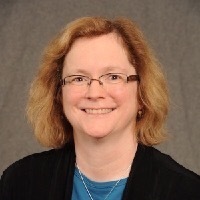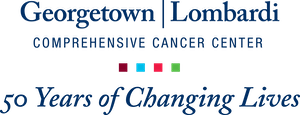| Messages | Send Email to User |

Shelley Brundage
Wanted to ‘give back’ to the scholars and physicians who saved my life
Wanted to share skills I have in order to advocate for excellence in breast cancer research and education
To make a difference in the lives of women and men with breast cancer
Diagnosed with HER2+ breast cancer in 2009
ProjectLEAD graduate, 2013
Advocate Panel member, NBCC Project LEAD workshop, Washington DC, 2014
Invited patient representative, ASCO expert panel for the development of a Chemotherapy for women with advanced HER2- breast cancer guideline:
Partridge, A., Rumble, B., Carey, L., Come, S., Davidson, N., diLeo, A., Gralow, J., Hortobagyi, G., Moy, B., Yee, D., Brundage, S., Danso, M., Wilcox, M., Smith, I. (2014). Clinical practice guideline 1-17: Chemo- and targeted therapy for women with HER2 negative (or unknown) advanced breast cancer: American Society of Clinical Oncology Clinical Practice Guideline. Journal of Clinical Oncology, 32 (29), 3307-3329.
Alamo Breast cancer Foundation scholarship recipient, 2015
Reviewer, Cochrane Collaboration, Tumor Bed Boost Protocol
My skills/strengths that I bring to the GBCA are my knowledge of the research process, my ability to organize and synthesize information, and my prior grant-writing experience.
PhD. In Communication Sciences and Disorders
Professor and Chair of Speech and Hearing Science, George Washington University
Fellow of the American Speech-Language-Hearing Association
Selected Publications
American Association for Cancer Research, 2015 Annual Meeting – The Role of Patient Advocates in Breast Cancer Research at Georgetown-Lombardi Comprehensive Cancer Center (poster)
San Antonio Breast Cancer Symposium, 2015 – Patient Advocates as Partners in Breast Cancer Research at Georgetown-Lombardi Comprehensive Cancer Center (poster)
American Association for Cancer Research, 2016 Annual Meeting – Energizing and Educating to Bridge the Scientist-Patient Advocate Gap (poster)
Other Publications (* = student co-author):
Brundage, S., *Corcoran, T., *Wu, C., & *Sturgill, C. (2016). Developing and using Big Data archives to quantify disfluency and stuttering in bilingual children. Seminars in Speech and Language, 37, 117-127.
Quail, M., Brundage, S., Spitalnick, J., Allen, P. & Beilby, J. (2016). Student learning outcomes across standardised patient, virtual and traditional placements. BMJ Medical Education, 16, 1-12. DOI: 10.1186/s12909-016-0577-5
Brundage, S., & Hancock, A. (2015). Real enough: Using virtual public speaking environments to evoke feelings and behaviors targeted in stuttering assessment and treatment. American Journal of Speech Language Pathology, 24, 139-149.
Brookshire, R. & Brundage, S. (2015). Writing Scientific Research in Communication Sciences and Disorders. Plural Publishing.
Brundage, S., *Whelan, C., & Burgess, C. (2013). Brief report: Treating stuttering in an adult with autism spectrum disorder. Journal of Autism and Developmental Disabilities, 43, (2), 483-489.
Tsai, P., Lim, V., Brundage, S., & Bernstein Ratner, N. (2011). Linguistic analysis of bilingual stuttering: concepts and methods. In P. Howell & J. Van Borsel (eds.). Fluency disorders and language diversity. Taylor & Francis.
Brundage, S. & Hancock, A. (2010). Assessment of student learning: Evidence based pedagogy. Invited commentary in International Journal of Therapy and Rehabilitation, 17, 586.
*Morton, E., Brundage, S. & Hancock, A. (2010). Validating the Proficiency in Oral English Communication Screening Test. Contemporary Issues in Communication Sciences and Disorders, 37, 153-166.
Hancock, A. & Brundage, S. (2010). Formative feedback, rubrics, and assessment of professional competency through the speech-Language pathology graduate program. Journal of Allied Health, 39, 110-119.
Brundage, S., & Graap, K. (2009). Collaborating with small business to fund your research. Perspectives on Fluency Disorders, 19, 90-94.
Hancock, A., Stone, M., Brundage, S., & Zeigler, M. (2010). Public speaking attitudes: does curriculum make a difference? Journal of Voice, 24, 302-307.
Brundage, S. (2007). Virtual reality augmentation for functional assessment and treatment of stuttering. Topics in Language Disorders, 27, 254-271.
Brundage, S., Graap, K., *Gibbons, K.,. Ferrer, M., & Brooks, J. (2006). Frequency of stuttering during challenging and supportive virtual reality job interviews. Journal of Fluency Disorders, 31, 325-339.
Brundage, S., Bothe, A., *Lengeling, A., & *Evans, J. (2006). Comparing judgments of stuttering made by students, clinicians, and authorities. Journal of Fluency Disorders, 31, 271-283.
Brundage, S., *Bowers, M., Garcia-Barry, S. and *Schierts, M. (2006). Describing the processes involved in treatment: An analysis of clinicians’ verbal behaviors in a community reintegration program for TBI survivors. Journal of Allied Health, 35, 81-88.
Brundage, S. and Graap, K. (2004). Virtual reality: an exciting new tool to enhance stuttering treatment. Perspectives on Fluency Disorders, 14, October, 4-9.
Associate Editor for American Journal of Speech-Language Pathology
Chair, Membership committee, International Fluency Association

